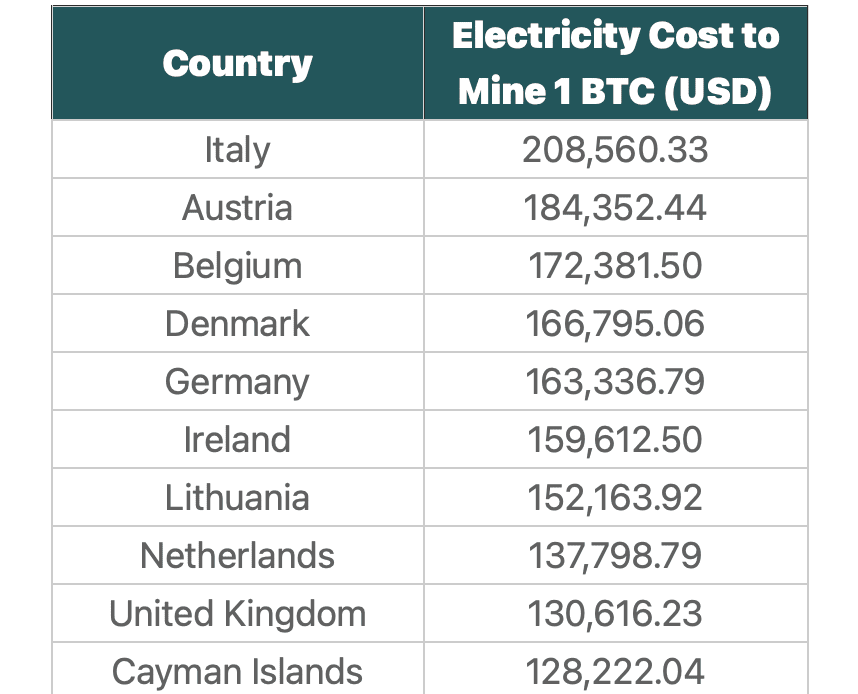There is a significant worldwide contrast in household electricity expenses for individual Bitcoin (BTC) miners. While producing one Bitcoin in Italy costs $208,500, in Lebanon, it’s roughly 783 times cheaper, according to a recent report.
Published on Aug. 17, CoinGecko’s report revealed that only 65 countries are profitable for solo Bitcoin miners, based solely on household electricity costs. Among these, 34 countries are in Asia, while Europe only has five.
However, solo Bitcoin miners find themselves at odds with the worldwide average of household electricity costs.
“The average household electricity cost to mine one Bitcoin is $46,291.24, which is 35% higher than the average daily price of 1 BTC in July 2023 ($30,090.08),” the report stated.
The report identified Italy as the costliest country for household Bitcoin production at $208,560.33 per Bitcoin. This was followed by Austria at $184,352.44 and Belgium at $172,381.50.
Meanwhile, Lebanon’s household electricity rates allow individual miners to generate one Bitcoin for just $266.02. This is approximately 783 times cheaper than the cost to mine a Bitcoin in Italy, priced at $208,560.33.
Iran followed, with a production cost of $532.04 per Bitcoin. However, despite Iran legalizing Bitcoin mining in 2019, the country has since banned legal operations on several occasions, citing stress on energy grids during winter.
On Jan. 4, Cointelegraph reported that approximately 150,000 pieces of crypto mining equipment was seized by Iran’s Organization for Collection and Sale of State-Owned Property (OCSSOP).
Related: Bitcoin mining researchers claim new tech ups winning hash chance by 260%
On Aug. 19, Binance CEO Changpeng “CZ” Zhao posted a screenshot of this report’s data on X (formerly Twitter), questioning his 8.6 million followers why individuals in these countries with low electricity wouldn’t mine Bitcoin.
Why wouldn’t they? ♂️ pic.twitter.com/cD1TSgOZzx
— CZ Binance (@cz_binance) August 19, 2023
However, CZ remained skeptical and believes there might be more factors to think about. Yet, he suggested it’s worth exploring further:
“The report probably didn’t consider feasibility and other logistics. But if the data is true, there definitely seems to be some potential opportunities.”
CZ acknowledged an X user who explained that many of these countries lack sufficient electricity for them to make the most of the…
Click Here to Read the Full Original Article at Cointelegraph.com News…
























